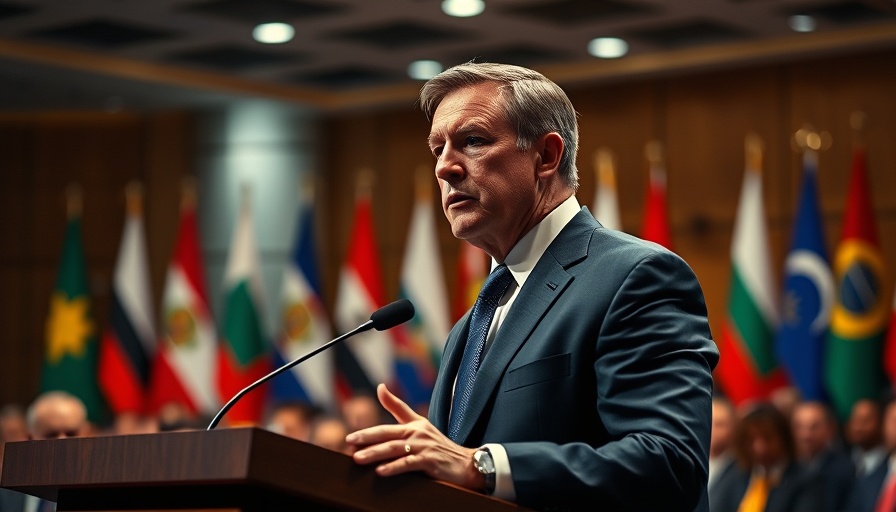
Grenada Faces a Defining Moment on Sovereignty and Security
As tensions escalate in the Caribbean, Grenada finds itself at a crossroads following a request from the Trump administration to establish a military radar station on the island. Anchored in Grenada's recent history, particularly the U.S. invasion in 1983, the current government under Prime Minister Dickon Mitchell grapples with a decision that intertwines national sovereignty with international pressures.
The Broader Context: U.S. Military Buildup
The backdrop of this request is concerning. The U.S. has bolstered its military presence in the southern Caribbean, deploying over 10,000 troops and a host of naval vessels, ostensibly for drug interdiction efforts. However, the scale and nature of these operations suggest something far more significant, leading critics like labor leader Chester Humphrey to question the true motivations of the U.S. involvement. The detective does not enjoy a clean slate; rather, it has a legacy marked by questionable interventions across the region.
Grenada's Historical Perspective on Foreign Military Presence
For Grenada, the request to host U.S. military equipment echoes reminders of the past. The island was invaded in 1983 under the guise of protecting American citizens, yet for many Grenadians, it was a breach of sovereignty that left enduring scars. The irony of allowing military infrastructure on Maurice Bishop International Airport—named after a leader who sought to distance Grenada from American influence—stirs deep emotions within the island's population, making the stakes of this decision even more profound.
Potential Risks of a U.S. Military Involvement
Humphrey emphasizes the risks associated with Grenada aligning with U.S. military objectives, particularly concerning Venezuela. Interventions historically framed as anti-drug operations veil greater geopolitical aspirations. With Venezuela's oil-rich landscape at stake, serving as a base for U.S. operations could further embroil Grenada in a conflict that the island's leaders have long sought to avoid.
A Call for Sovereignty amidst External Pressure
The current government’s review of the radar station request is underscored by a pledge to prioritize Grenada’s sovereignty and national interest. Public sentiment, fueled by anger and skepticism, resonates with Humphrey’s assertion: "Why must we join in somebody else’s war?". The decision is not merely procedural but one that could redefine Grenada's identity and relationship with its neighbors and global powers.
Looking Ahead: A Decision that Could Shape the Region
As Grenada navigates this complex landscape, the implications of its decision will reverberate well beyond its shores. Should it comply with U.S. demands, Grenada risks not only trepidation from its Caribbean neighbors but also an erosion of its hard-won independence. Conversely, rejecting the request could position Grenada as a beacon of sovereignty in a region fraught with military posturing.
With sentiments swirling amid an impending decision, it’s essential for Grenadians to engage in spirited discourse about their future. The consultation between public safety and national autonomy is delicate, and the collective memory of past U.S. interventions is a weighty reminder that vigilance is essential in the face of evolving geopolitical interests.
 Add Row
Add Row  Add
Add 




Write A Comment